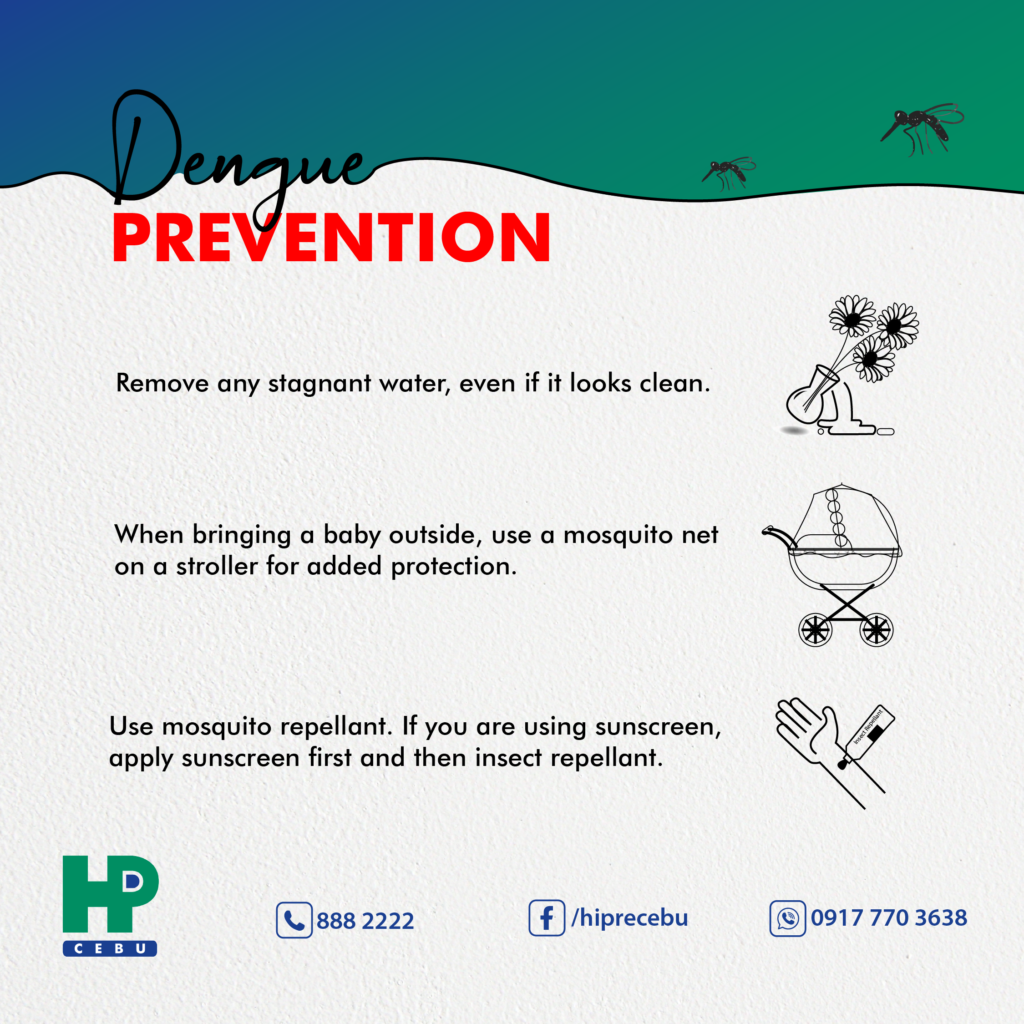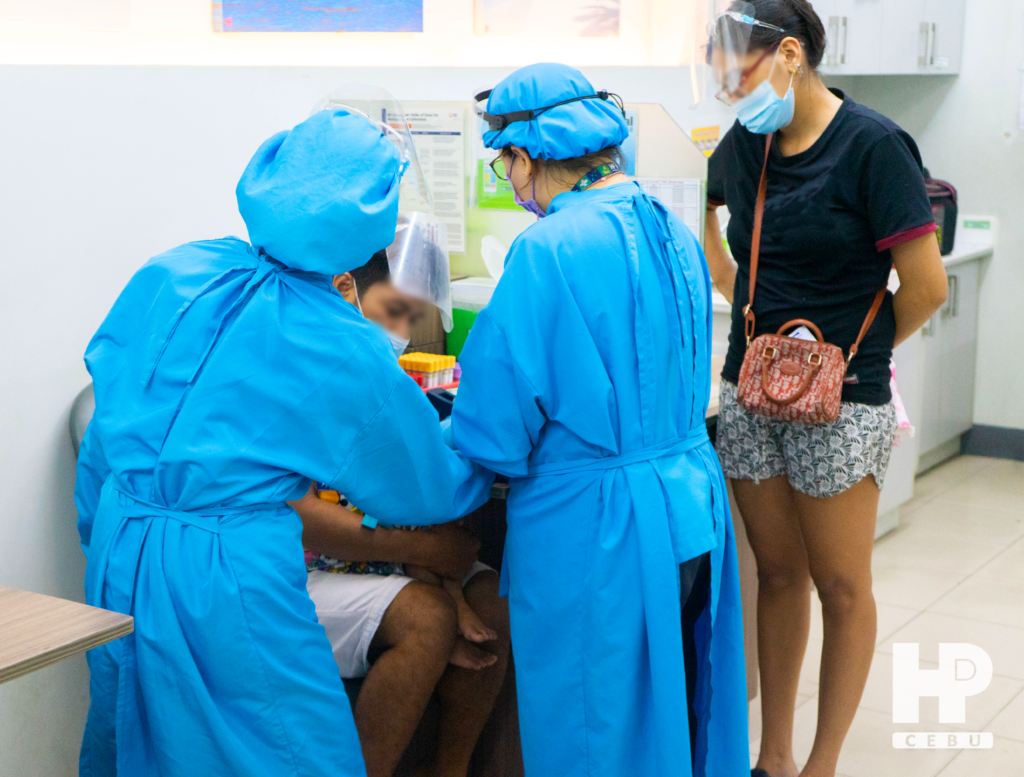At the height of the coronavirus pandemic in April 2020, Evelyn suddenly developed fever, cough, a lack of appetite, and intermittent vomiting while quarantined at home. At first, she feared the worst “Nabalaka jud ko kay basig Covid ning sakit. Mao sad to ang usa sa mga rason kon ngano dugay ko nagpacheck up (I was worried that I might have Covid. That is one of the reasons that it took me a while to go to a doctor for a checkup).” After visiting the Cebu Main branch of Hi-Precision, it turned out that Evelyn actually tested positive for dengue. Thanks to the quick work of Hi Pre Cebu staff, she was able to get the right medicine in time for a speedy recovery.
To know more, call HPD’s landline at 888 2222 or visit their Facebook page at https://www.facebook.com/hiprecebu/.
This was during the pandemic, but with the loosening of COVID lockdowns, there is now an alarming rise of dengue cases this year not just in Cebu, but all over the country. For over 20 years, Hi-Precision Diagnostics has saved countless lives by offering affordable dengue testing and medical consultation for those affected by the disease. Here are some tips compiled by the HPD team for preventing or fighting the disease.
Prevention is always better than cure
We all know that dengue is carried by mosquitoes that often live near stagnant pools of water. But what is important to note is that the specific kind of mosquito that carries dengue is most active during daytime, specifically two hours after sunrise and several hours before sunset. This is why children are most at risk of dengue because they like to play outside.
READ MORE: Is it Dengue or COVID-19? Here’s how you can tell
Make sure that when your kids are playing outside, they either wear long sleeves or have applied mosquito repellant on their skin. It is also good practice to clean out any dirty or clean stagnant water as these are areas where mosquitoes can lay eggs. Old or worn-out tires with holes that have collected rainwater can become a breeding ground for mosquitoes if left unattended. These and as well as other containers like flowerpots and other dishes that can store water must be regularly disposed of to prevent outbreaks.
Symptoms of dengue
But what should you do if you or someone you know has dengue? If someone develops a fever, one must be wary of other symptoms like severe headache, pain at the back of the eyes, and joint pain. If you feel these things, immediately consult your doctor and get tested.
If the person experiences persistent vomiting, severe abdominal pain, difficulty breathing, or lethargy/restlessness, that is a sign of severe dengue infection, and the patient must be admitted to the hospital.

Get rest, and avoid sudden movements
Patients should get plenty of rest for two reasons:
- As dengue is a viral infection, it cannot be cured by a single medicine. Dengue can only be killed through the natural immunity in our bodies, so rest is the best way for the body to fight back.
- In severe cases of dengue, high levels of hematocrit can lead to bleeding and bruising. So doctors advise that patients do not touch their nose or make sudden movements to avoid sudden bleeding.
Stock up on lots of Vitamin C and oral hydrating solutions, but don’t eat dark colored foods
Vitamin C is essential in making the body strong and able to fight against diseases. Good sources of Vitamin C include oranges, papayas, guava, calamansi, bell pepper and broccoli. Another thing to stock up on are oral hydrating solutions such as Pedialyte, Hydrite, or Vivalite. This is because people with dengue often lose much-needed nutrients if they vomit, and drinking these solutions can help replenish lost nutrients.
Can common herbs like mangagaw or papaya flower be effective treatments for dengue? Although mangagaw has long been used to alleviate asthma or diarrhea, there is no evidence that mangagaw can cure or help fight dengue. Dengue prevention and early testing is still the best way to save lives.
Get regularly tested for dengue (CBC, NS1, IGG and IGM)
During this time, doctors will need various tests to monitor symptoms and to ensure the patient’s safety. Here are some procedures recommended for dengue patients throughout the different stages of the illness
Complete blood count
When it should be taken: One day after fever
Purpose: For doctors to count the number of platelet and hematocrit levels of the blood. If the hematocrit goes up, the blood becomes thicker (mas espeso), leading to shortness of breath which doctors can address. This also allows doctors to understand the severity of the disease and if the patient needs to go to the hospital.
DENGUE NS1 TEST
When it should be taken: First 2-5 days of the fever
Purpose: This test is used to confirm if the patient currently has dengue.
Dengue IGG/IGM
When it should be taken: One week after fever
Purpose: Used to measure antibodies during a severe stage of dengue fever, also used to see if a patient has had prior exposure to dengue in the past.
All of these tests provide vital information for the doctor to find the best way to fight a dengue infection. These tests can be found in your nearest Hi-Precision Cebu branch, be it Cebu City, Mandaue, Talisay, Mactan, Liloan, or Naga branch. To know more, call HPD’s landline at 888 2222 or visit their Facebook page at https://www.facebook.com/hiprecebu/.
ADVERTORIAL


